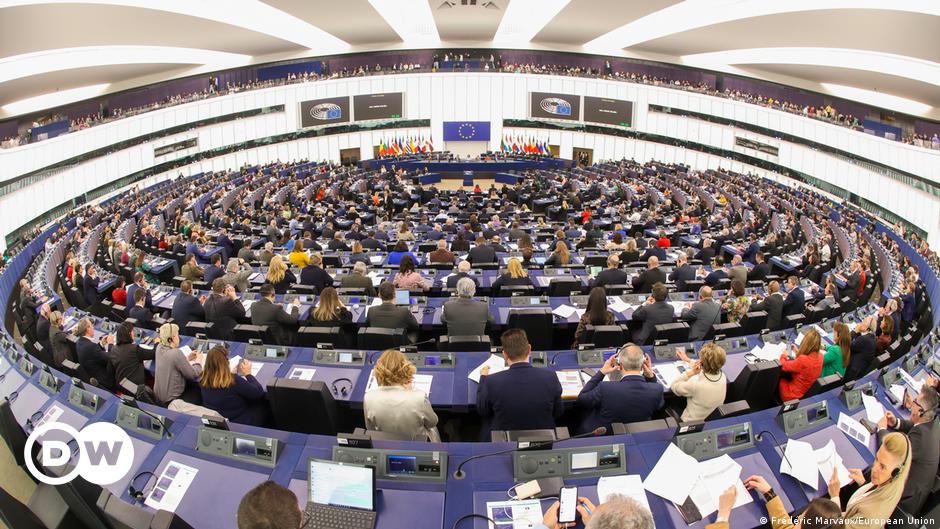
European Union lawmakers on Wednesday gave their final approval to landmark legislation to govern artificial intelligence.
The Artificial Intelligence Act was passed in the European Parliament in Strasbourg with 523 votes in favor and 46 against.
The new law aims to protect citizens in the bloc’s 27 member states from the possible risks associated with the fast-changing technology, as well as allow innovation to thrive.
“Our ground-breaking AI law will allow us to be world leaders in digital and tech innovation based on EU democratic values, because Europe has the ability to set the tone worldwide and lead responsibly,” European Parliament President Roberta Metsola said after the vote.
EU industry chief Thierry Breton welcomed the parliament’s “overwhelming support.”
“Europe is now a global standard-setter in trustworthy AI,” he said.
What are the EU’s new AI rules?
The new law categorizes different types of artificial intelligence according to risk, with strict requirements or outright bans for AI tools deemed to pose more danger.
Most AI systems are expected to be classed as low risk, such as models used for content recommendation or filtering spam. High-risk uses of AI, such as in the medical field or critical infrastructure like power networks, will face greater scrutiny. Companies behind those models must conduct risk assessments, provide clear information to users, and ensure their products comply with the law before they are released to the public.
The data used to train their algorithms must also meet certain quality and transparency standards.
Real-time facial recognition in public spaces will be banned, although there are some exceptions for law enforcement. The law also prohibits the use of AI for predictive policing and systems that use biometric information to infer individual’s race, religion or sexual orientation.
Companies that violate the law can face fines ranging from €7.5 million to €35 million ($8.2 million to $38.2 million).
What happens next?
The AI Act still needs to be endorsed by the individual EU member states, but that is considered a formality.
It is expected to come into force later this year.
Rules covering generative AI models such as ChatGPT will come into effect 12 months after the law becomes official, while companies must comply with most other provisions in two years.
Prohibited AI systems will be banned six months after the rules come into effect.
nm/sms (AFP, dpa, AP)
Source: dw.com


